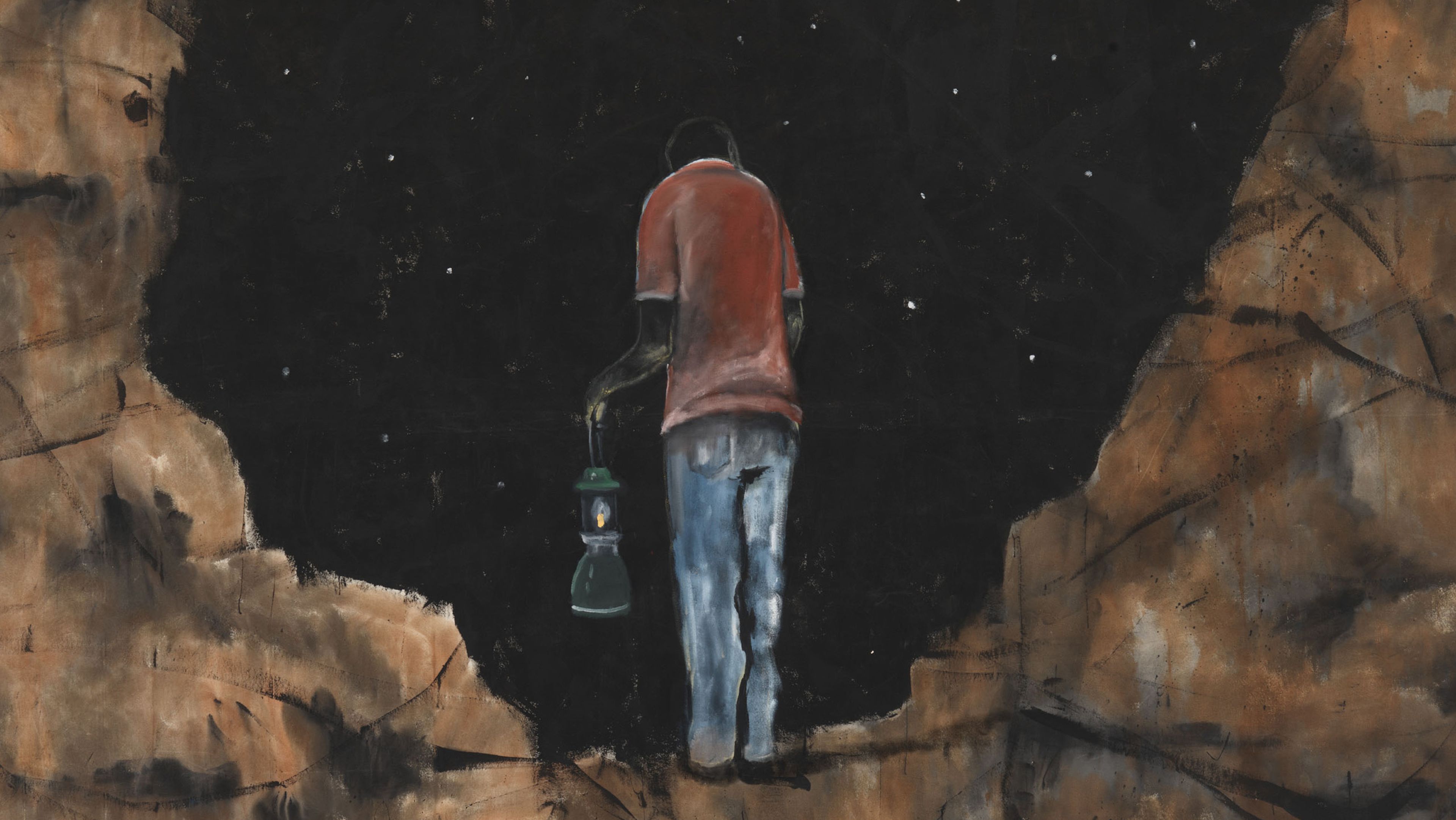The Washington Post, review by Sebastian Smee
January 2020
“Davis liked painting people. But only a handful of his works qualify as portraits. Some teeter on abstraction. There is, for instance, an odd, intriguing, not quite successful painting that superimposes two paintings of houses on a brushy, brown abstraction resembling Mark Rothko’s work.
Others read as scenes from dreams. Describing them would be both laborious and redundant. Visually, however, they’re both hallucinatory and credible — unlike standard Surrealistic fare, which almost always feels concocted. There was nothing formulaic about Davis’s approach. Even when he was painting mundane domestic scenes, his eye for the subject and his painterly treatment infused them with a sly, soft-pedaled, gently melancholy wonder. One thinks of Fairfield Porter with a little more zing, or of a more nonchalant Peter Doig. In several images, Davis showed people dwarfed by varieties of magical immensity. He would paint a child in blue pajamas at the foot of a daunting wooden staircase leading to a door emitting a mysterious cloud of colored glitter. Or a man looking at a monumental abstract sculpture on the leafy grounds of a wealthy estate. Or simply the night sky over Los Angeles.
But my favorite Davis painting shuns any hint of the sublime. It depicts a mother and her young daughter at a street crossing. Beside them, a man dressed in black and clutching a plastic bag bends over to retrieve something from the gutter. Merely as a fragment of life, the image is compelling. What makes it great is the division of the composition into taut diagonals and fiercely pulsing stripes. Against these, Davis superimposes the bright, almost jitterbugging mosaic pattern on the mother’s spandex pants. Combining formal audacity with emotional intimacy and sharp social observation, the picture attains a fullness of humorous, sorrowing life.”
Read the full review in The Washington Post
Cover image above: Noah Davis, Untitled, 2015

